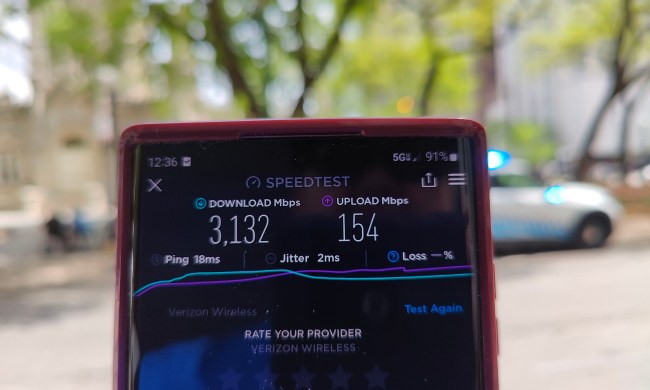
As anyone who has kept an eye on cell phone news for the last few months can attest, Sprint managed to drum up a fair amount of hype for its own iPhone competitor, the Samsung Instinct, prior to its June 19 release. And as the carrier revealed Thursday, it seems have paid off. In the week since it launched, the Instinct has become Sprint’s fastest-selling 3G phone ever, leading to shortages all over the country.
Sprint didn’t reveal by just how much the Instinct shattered previous records (or which other 3G phone it ousted) but apparently the carrier expected the phone’s success: its initial order to Samsung was the largest it had ever placed for a 3G handset. Even still, the company admits to (or boasts of) temporary shortages at many of its stores, which Samsung’s manufacturing plants are addressing by cranking away at full capacity.
Although the Instinct has temporarily bested the iPhone with 3G Internet access, GPS, and a lower price ($129.99 after a two-year contract,) Apple will strike back on July 11 with the release of the iPhone 3G, which will address the first two concerns, and drop price to a close $199 with contract.



